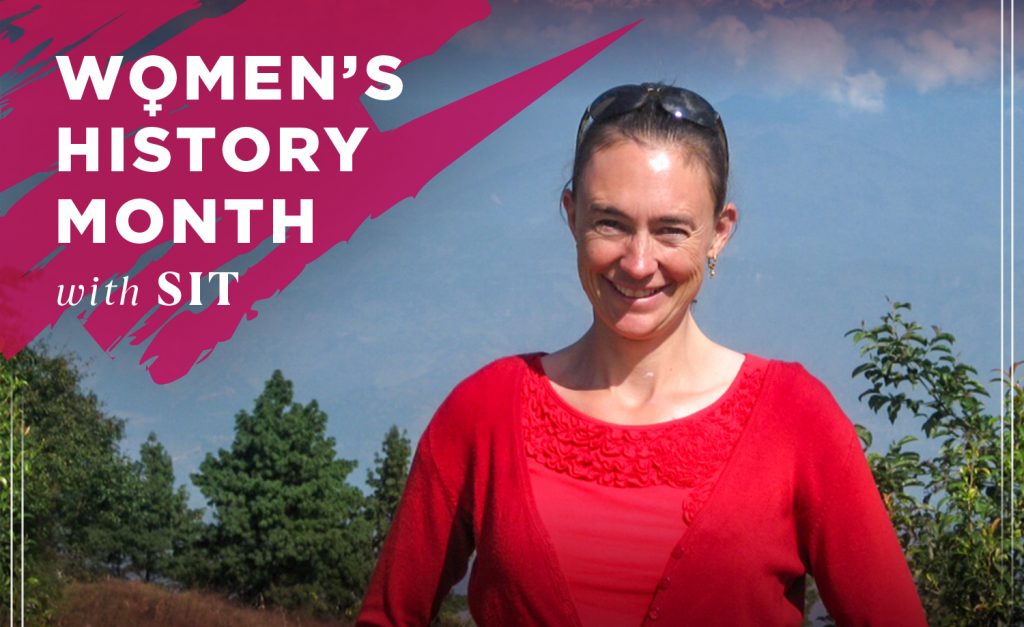Beth Pratt-Sitaula: Earth scientist
March 13th, 2020 | SIT Study Abroad
Nepal: Geoscience in the Himalaya
During Women's History Month, SIT is spotlighting some of our extraordinary academic and program directors across the globe who are making history today through their thinking, their words, and their actions.

What’s your academic discipline and what inspired you to pursue it?
I’ve always loved science. Fortunately my father is a scientist (physicist) so talking about how the world/universe works was part of conversations we had regularly. My parents always stressed that girls could do any job they wanted to. I cycled through a variety of different sciences that I was most interested in but eventually settled on Earth science in college when I realized I could do science and go camping/hiking at the same time.
Who is your hero and why do you admire her?
Tanya Atwater is my hero. She was a pioneering geophysicist who started in the late 1960s, a time when only a few other women were in the field. As a graduate student during the heady late 1960s when plate tectonics was being realized by the Earth science community, she helped to make breakthrough discoveries about the San Andreas fault, despite the many many barriers to women scientists at this time. She was in the first crew of the Alvin deepwater submersible, in which women were included.
She has received many awards from organizations such as the National Academy of Science and Geologic Society of America, but the one I admire most is the Gold Medal from the Society of Woman Geographers. In my opinion, the Gold Medal is far more prestigious than the Nobel Prize in that only 21 women scientists have received it since it started in 1933. Tanya shares this honor with the likes of Amelia Earhart and Jane Goodall. In addition, she is a joyous and supportive mentor who has priorirized working with teachers and doing science outreach over high-powered career moves.
Why do you teach?
I love talking about ideas and getting excited about learning more about how the Earth works. When I’m with students, I get the added excitement of seeing them learn new things and succeed in testing themselves in challenging and new situations.
What advice would you offer young women?
